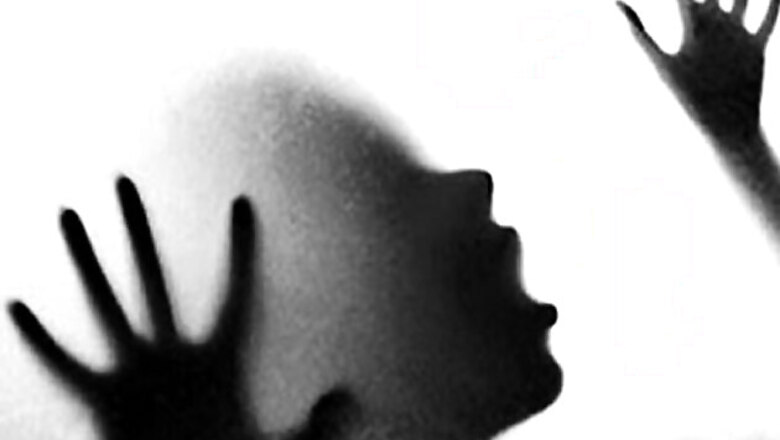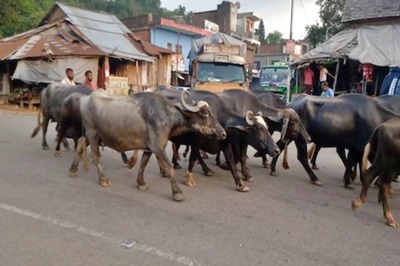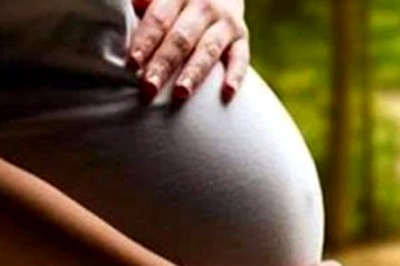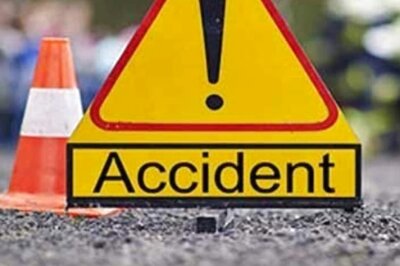
views
New Delhi: Two years ago on the night of December 16, 2012 the brutal gangrape of a paramedical student by six men on a moving bus in the national capital shook the nation for the sheer brutality and torture inflicted on the hapless girl.
The girl and her male friend fought bravely but she suffered fatal injuries and was admitted to Delhi's Safdarjung hospital. Despite the best efforts by the doctors, her condition kept on deteriorating and she had to moved to a Singapore hospital even as thousands of youngsters protested on the streets of Delhi demanding justice for her. She finally succumbed to her injuries on December 29, 2012.
Seeing the massive anger against the heinous crime, the government was forced to set up a three-member committee to suggest changes in the anti-rape laws.
One of the perpetrators of the crime was a juvenile who was sent to a juvenile home for just 3 years while another accused died mysteriously in the jail during the trial.
But even after two years of the horrific crime that shook the entire nation, justice is yet to be fully delivered to the girl's family.
Here is the timeline of the case:
December 16, 2012: The young paramedic student is raped and beaten up by six men in a moving private bus and thrown out of it after 30 minutes of torture along with her male friend. They are admitted to Delhi's Safdarjung Hospital the same night.
The Victim and her male friend were returning to Dwarka after watching a movie at Select Citywalk mall in Saket, Delhi, and were lured by the six accused. After the duo entered the bus, the accused began to harass the women which led to an altercation. The accused beat the 28-year-old male friend and then took turns to rape the woman.
December 17, 2012: Police identify four men who raped and assaulted the girl. Victim's full extent of internal injuries determined by doctors.
December 18, 2012: Nation outraged by the brutal gangrape while the incident shakes up Parliament with Leader of the Opposition Sushma Swaraj demanding death penalty for rapists. Protests carried out by people on the Ring Road near the Munirka signal against the gangrape.
A total of four accused arrested, including bus driver and main accused Ram Singh, search on for two others. Ram Singh's brother Mukesh, Vinay Sharma and Pawan Gupta were other accused in the case.
December 19, 2012: Doctors at Safdarjung Hospital treating the victim announce she is communicating through writing messages but still not out of danger. Permit of the bus, in which the incident happened, cancelled by the Transport Department.
December 20, 2012: Students from Jawaharlal Nehru University, Delhi University and Jamia Milia demonstrated outside former Delhi chief minister Shiela Dikshit's residence against the government's failure to curb the rising number of such crimes against women.
The eyewitness and male friend of the victim gives statement.
December 21, 2012: Safdarjung doctors say the victim is stable, but still critical. She is taken off the ventilator. Her male friend identifies one of the accused, Mukesh, during the test identification prade at Tihar jail. Police conducts raids in Haryana and Bihar, nab one more accused Akshay Thakur.
December 22, 2012: Protests against the gangrape pick up with nation wide outrage on the incident. Thousands gather at India Gate, as victim remains critical. Victim gives statement to the sub-divisional magistrate.
December 23, 2012: Protests against the Delhi gangrape turn violent. Protesters defy prohibitory orders of the government, face police's water cannons and tear gas shells. Constable Subhash Tomar of Delhi Police seriously injured during clashes at India Gate.
The victim's heath remains serious with bouts of vomitting, although she was communicating and conscious. She also suffered internal bleeding.
On December 23, 2012 a three member Committee headed by Justice J.S. Verma, former Chief Justice of the Supreme Court, was constituted to recommend amendments to the Criminal Law so as to provide for quicker trial and enhanced punishment for criminals accused of committing sexual assault against women. The other members on the Committee were Justice Leila Seth, former judge of the High Court and Gopal Subramanium, former Solicitor General of India.
December 24, 2012: Prime Minister Manmohan Singh makes statement regarding the gangrape and the following protests. Appeals for calm and assures stringent measures for women in the country.
Two gangrape accused brought before a Delhi court say they committed a horrible crime and "deserved to be hanged".
December 25, 2012: Doctors treating the victim say she is responding to the treatment despite being critical. Platelet count and liver function of the gangrape victim improves. She gives her statement again to metropolitan magistrate after former CM Dikshit complains to Home Minister Sushil Kumar Shinde that senior police officials "interfered" in the process. However, the victim's health deteriorates the same night.
Constable Subhash Tomar succumbs to injuries sustained during December 23 protests at India Gate.
December 26, 2012: Protests against the gangrape continue at Jantar Mantar. Constable Tomar cremated with full state honours. Victim shifted to Singapore's Mount Elizabeth Hospital in a sudden move after her condition deteriorates and she suffers cardiac arrest.
December 27, 2012: The victim remains critical in the ICU of Mount Elizabeth Hospital. 3,000 security personnel, from Delhi Police and para-military forces, man Delhi roads to stop any violent demonstration.
December 28, 2012: Congress party chief Sonia Gandhi demands speedy justice in the case. Doctors at Mount Elizabeth say the victim's condition worsened with signs of multiple organ failure. She gets infection in the lungs and abdomen as well as an injury to the brain.
December 29, 2012: The victim succumbs to massive internal injuries after battling with them for over 12 days. She died at 2:15 AM Indian Standard Time on December 29.
December 30, 2013: The victim's body arrives in New Delhi. Protesters rally peacefully in the capital and other cities to keep the pressure on the government to get tougher on crimes against women.
January 2, 2013: The then Chief Justice of India Altamas Kabir inaugurates fast track court (FTC) for speedy trial in sexual offence cases.
January 3, 2013: The father of the victim demands that those responsible be hanged and calls for new legislation on sex crimes to be named in honour of his daughter. Five men are formally charged and a sixth accused was due to be tried separately in a juvenile court.
January 5, 2013: The five accused brought under "suicide watch" after they stop interacting with other jail inmates and amongst themselves.
January 7, 2013: Court orders in-camera proceedings.
January 17, 2013: Fast track court starts proceedings against five adult accused.
January 23, 2013: A panel headed by late Justice JS Verma rejects the idea of the death penalty for rape cases, and says India needs to implement existing laws to prevent rape.
January 28, 2013: Sixth accused is a minor, rules Juvenile Justice Board.
February 2, 2013: Five accused charged with 13 offences including murder.
February 28, 2013: Juvenile Justice Board (JJB) frames rape, murder charges against minor accused.
March 11, 2013: Main accused Ram Singh commits suicide in his cell in Tihar jail number 3.
March 21, 2013: India approves a tougher new anti-rape law to punish sex crimes, including death for repeat rape offenders.
March 22, 2013: Delhi High Court allows national media to report trial court's proceedings.
July 5, 2013: Inquiry (trial) in JJB against juvenile in gangrape-cum-murder case and robbery matter concludes. JJB reserves verdict for July 11.
July 8, 2013: Fast track court completes recording of testimonies of prosecution witnesses.
July 11, 2013: JJB holds minor guilty of illegally confining and robbing a carpenter on December 16 night before allegedly taking part in the gangrape.
Delhi High Court allows three international news agencies to cover the trial of the case.
August 22, 2013: Fast track court begins hearing final arguments in trial against four adult accused.
August 31, 2013: JJB convicts the minor for gangrape and murder and awards three years term at a probation home.
September 3, 2013: Fast track court concludes trial. Reserves verdict.
September 10, 2013: Court convicts Mukesh, Vinay, Akshay, Pawan of 13 offences including gangrape, unnatural offence and murder of the girl and attempt to murder her male friend.
September 11, 2013: Court fixes September 13 for pronouncing sentence after hearing arguments on quantum of punishment to be awarded.
September 13, 2013: Court awards death to all four convicts. Trial court refers the case to the Delhi High Court for confirmation of their death sentence.
November 1, 2013: The Delhi High Court starts hearing the case on a daily basis.
January 3, 2014: The Delhi High Court reserves its verdict on confirming the death sentence and appeals of the four convicts.
February 4, 2014: The Delhi High Court slammed the Delhi government over the December 16 gangrape case, calling it lethargic and negligent.
March 13, 2014: The Delhi High Court upholds the death sentences awarded to the four convicts.
June 2, 2014: Two death row convicts moved the Supreme Court against the Delhi Helhi Court verdict in the case.
July 14, 2014: The Supreme Court stayed till further orders the execution of death penalty of two of the four convicts. It stayed the execution of Vinay Sharma (21) and Akshay Thakur (29), who were convicted along with other two - Mukesh (27) and Pawan Gupta (20) - whose death sentence was already stayed.




















Comments
0 comment